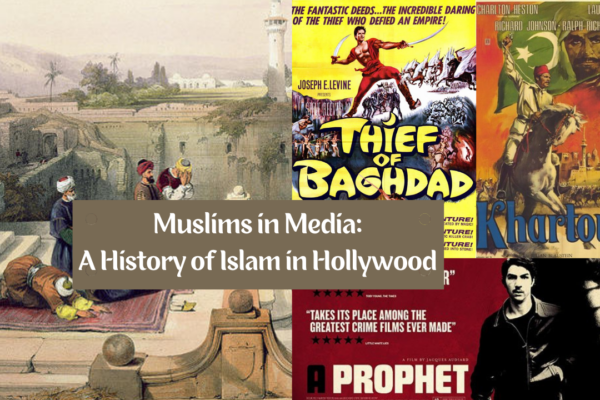The series is overall well-acted, directed, and filmed, as you would expect from a big-budget TV series. However, the TV series like many before it has fallen into worn-out clichéd stereotyping and dumbification, and the usual lopsided representations that have become all too familiar and tiring.
The series is overall well-acted, directed, and filmed, as you would expect from a big-budget TV series. However, the TV series like many before it has fallen into worn-out clichéd stereotyping and dumbification, and the usual lopsided representations that have become all too familiar and tiring.
I was not surprised to watch the new Netflix series ‘Messiah’ and its simplification and US-washing of world politics, currently as the Middle East is in flames. The premise of the TV series is to depict a messianic figure with the connotation of Jesus Christ, who may or may not be an actual divinely appointment individual.
The series unpacks the storyline and characters over ten episodes, and with each episode the various characters’ motivations, drives, and backgrounds are ever so slightly revealed. Some of the episodes could have been made shorter and at times the story drags, but overall there was a strong enough cliff-hanger at the end of each chapter for the audience to possibly binge-watch the series.
The main character’s motivations are never directly revealed by himself (usually a film ploy to keep the viewer guessing and interested until the end), but his aims and motives are predicted by the supporting characters whom each have conflicting and contrary assumptions about this possible messianic person.
The series is overall well-acted, directed, and filmed, as you would expect from a big-budget TV series. However, the TV series like many before it has fallen into worn-out clichéd stereotyping and dumbification, and the usual lopsided representations that have become all too familiar and tiring.
The CIA officer who works tirelessly to protect and serve her country even when corrupt elected US politicians stand in her way. The Israeli Mossad secret agent, who uses brutality and criminal methods, but it’s fine because he gets results and protects Israel, and he only really became part of the secret service because his mother was killed randomly by a Palestinian Muslim terrorist for no good reason. The Muslim terrorist Sheikh leader who grooms vulnerable young men, and sends them to commit acts of suicide bombings, without any justification or reasoning. The usual Arab Muslim Middle Eastern country, fighting a brutal and oppressive war against its people. The typical Palestinian identity’s representation of violence, rioting, and angry people. Yes, some Palestinians or other Arabs are shown as tourists in the Al-Aqsa Mosque for a brief time, but when you finish watching this series, there is no doubt in the viewers’ mind which nation and people are stable and have transparency and which ones are harsh and brutal.
And of course, the biggest stereotype and representation that has prevailed in so many Hollywood and TV series throughout the ages: the fair, just, and considerate United States President — always represented with integrity, individuality, and the courage to make the right choices at the most challenging times. In ‘Messiah’ President Young wants to end wars, he craves peace, but its Russia that has amassed thousands of troops on the Latvia border, so what is he to do? If he withdraws all US troops from the world stage, the world will descend into chaos. It is the American military might that is keeping the world safe from evil regimes, terrorist organisations, and complete anarchy. American exceptionalism is mentioned, but it is never really tackled in this series, and Palestinian-Israeli conflict is mentioned but never truly laid bare.
This series is entertainment, there is no doubt, but the creators of this series and other films like it are happy to use the legitimacy of real-world problems to contextualise and legitimise their stories and products, at the same time refusing to acknowledge and provide a fair and balanced representation of the issues mentioned. When representation is skewed, manipulated, misrepresented and lensed through the perspective of only the dominant military, economic and media power, then the real-world problems and troubles will perpetuate and continue. When films and TV series after next depict the issues of Muslim identity, Middle East countries, Palestinians, and American military destructive power and presence around the world – as currently being witnessed in the Middle East, Latin America and Far East Asia – how can there be a real dialogue and true transformation?





